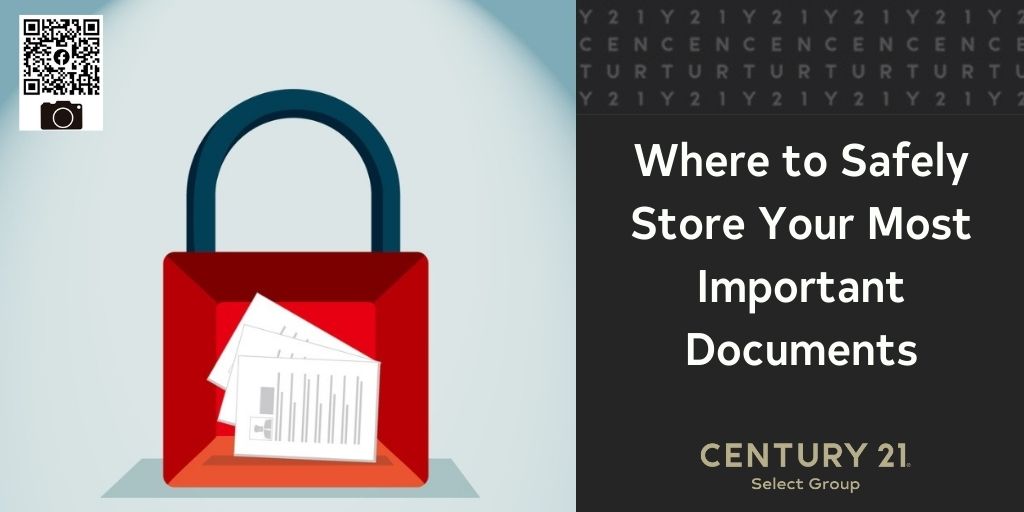Where to Safely Store Your Most Important Documents
When disaster strikes, or when you’re putting together an emergency plan, finding the right place to store your most valuable documents is an important step every homeowner should take. Paperwork, such as financial documents, medical records, life insurance policies, will and trusts, social security information, house deeds, etc., should be stored in a secure location that is safe and accessible. Knowing where you keep these documents will help you avoid stress when they are needed the most. Here are three places you and your family should consider when putting together a disaster plan.

Lockable Filing Cabinet or Safe
If you want to keep your most valuable paperwork close to home, there’s no better place for storage than inside your house. With many affordable options available, you can find a fire-proof, lockable filing cabinet or safe that will protect and hold these documents. Be sure that at least one trusted source outside of your home has a key or combination in case of an emergency where you cannot physically access them.
Safety Deposit Box
If you’re looking for extra security, consider renting a bank safe deposit box. The bank will only allow you and anyone else on the agreement access to the box, which is protected with a lock and key, as well as alarm systems. You also have assurance that your items will never be left alone unattended, per bank security guidelines. Remember to keep a list of everything you store inside your safety deposit box.
Online Document Storage
For digital documents, storing your information in the cloud is another secure way to keep them safe. With an internet connection, companies like Dropbox, Google Drive and Microsoft OneDrive are available with 24/7 access wherever you are. Storing your documents online also allows you to share them with medical professionals or family members with ease. Though there is a risk of online hackers, protecting your accounts with a password, a private internet connection or an electronic encryption will keep your documents safe and secure.
No matter where you choose to store your most valuable documents and paperwork, keep an inventory of location and a list of who can access which item. In case of emergency, these items can be of great importance for you and your family, so be sure you are keeping them safe.





